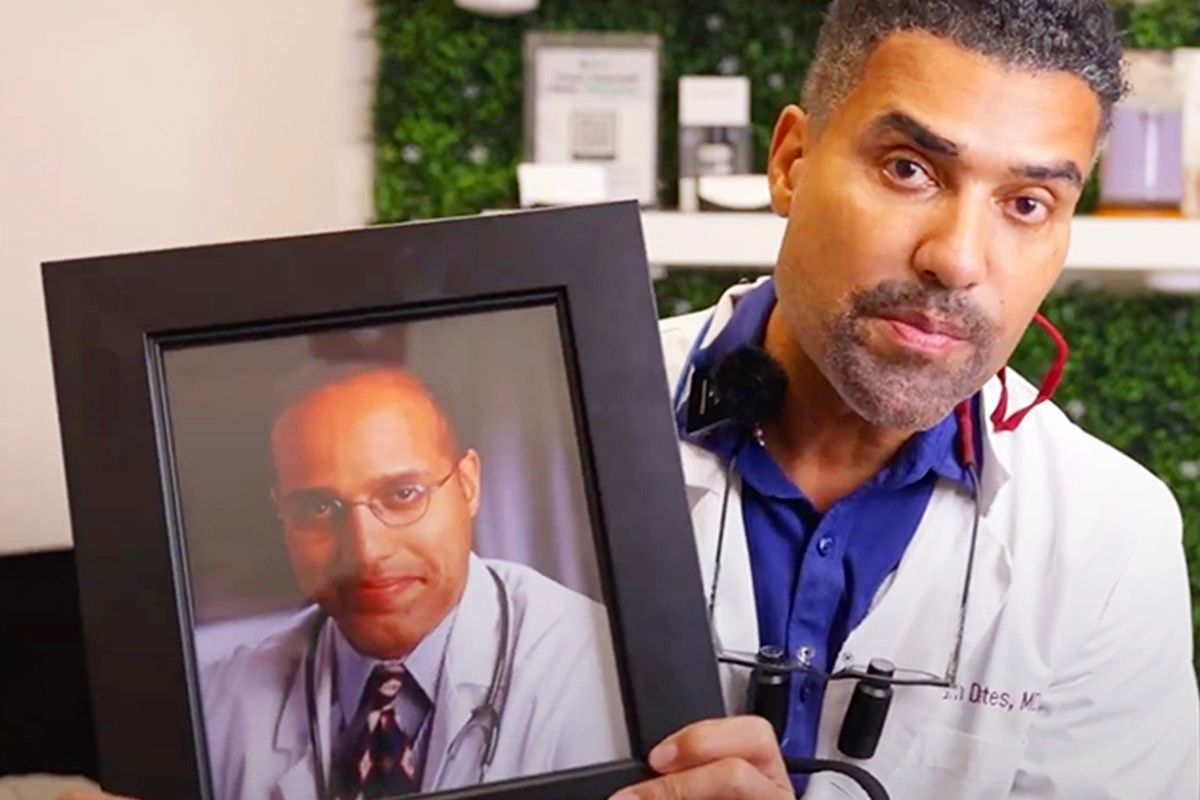



There's an old saying, "you are what you eat." But have you ever given a thought to the fact that your hair could also be a reflection of your diet? The health of our hair is influenced by the nutrients we consume. So, if you're struggling with hair loss or thinning, it might be time to look at your plate. In this blog post, we'll delve into the fascinating world of dietary changes for hair health, backed by scientific studies and expert opinions.
Understanding the Basics of Hair Health
Our hair is primarily made up of protein, specifically keratin. This means that a diet lacking in protein can lead to weak, brittle hair and in severe cases, hair loss. Besides protein, vitamins and minerals like iron, vitamin D, biotin, and zinc also play a crucial role in maintaining hair health.
Factors such as age, genetic make-up, hormonal fluctuations, stress, and some medical issues can also affect the condition and growth of our hair. However, one aspect that we can manage effectively is our nutritional intake.
The Connection Between Diet and Hair Health
It's no surprise that a balanced diet contributes to overall health, but how exactly does it impact our hair? A nutrient-rich diet ensures the hair follicles receive the nourishment they need to grow and stay healthy. When we deprive our bodies of certain nutrients, our hair health can take a hit.
Let's look at some dietary changes for hair health you can implement to boost the strength, shine, and thickness of your hair.
As mentioned earlier, our hair is predominantly made up of protein. So, incorporating enough protein into your diet can help enhance the health and thickness of your hair. Foods high in protein include lean meats, fish, eggs, dairy products, and plant-based sources like lentils, chickpeas, and quinoa.
Iron plays a significant role in maintaining hair health. Its function is to assist red blood cells in delivering oxygen to our body's cells, including those of the hair follicles. Insufficient iron intake can result in anemia, a condition associated with hair loss. Hence, it's important to incorporate foods rich in iron, such as red meat, spinach, kale, and iron-enriched cereals, into your dietary routine.
Certain vitamins are essential for maintaining hair health. Vitamin A, for example, aids in the production of sebum, which keeps our hair moisturized and healthy. B-vitamins, particularly biotin, are known for their role in hair growth. Vitamin D promotes the creation of new hair follicles, while vitamin E protects the hair from damage.
Zinc, an essential mineral, is instrumental in fostering the development and restoration of hair tissues. It's also crucial for maintaining the function of the oil glands surrounding the hair follicles. A deficiency in zinc often manifests as hair loss. To boost your zinc intake, consider incorporating foods like oysters, beef, spinach, wheat germ, pumpkin seeds, and lentils into your diet.
Omega-3 fatty acids, which our bodies can't generate on their own, must be sourced from our diet. These essential fats offer an array of health advantages, including enhancing the health of our skin and hair. Omega-3s contribute to hair nourishment, aid in thickening the hair, and reduce inflammation that could result in hair loss. Foods rich in Omega-3 include oily fish like salmon and mackerel, flaxseeds, walnuts, and chia seeds.
Water makes up almost 25% of the weight of a single strand of hair. Staying hydrated can therefore help with scalp health and hair growth. While there's no magic number for the amount of water you should drink, a good rule of thumb is to listen to your body and drink when you're thirsty.
Not only can processed foods harm your general health, but they can also affect the condition of your hair. Whole foods are brimming with essential nutrients that your hair requires to maintain its strength and vitality. By including a diverse range of fruits, vegetables, lean proteins, and whole grains in your meals, you can guarantee that your diet provides the ideal balance of nutrients for the best possible health of your hair.
Certain foods are particularly beneficial for hair health. These include eggs, which are rich in protein and biotin; berries, loaded with beneficial vitamins and antioxidants; spinach, providing iron, folate, and vitamin A; and avocados, an excellent source of vitamin E and healthy fats. Regularly incorporating these superfoods into your diet can contribute significantly to improving your hair health.
Remember, dietary changes for hair health aren't about quick fixes. It's about adopting a healthier lifestyle that supports the health of your hair in the long run. While it's important to incorporate nutrient-rich foods into your diet, it's equally important to manage stress, get regular exercise, ensure adequate sleep, and avoid harmful hair practices like excessive heat styling or tight hairstyles.
Dietary Changes for Hair Health: What to Avoid
When it comes to maintaining healthy hair, diet plays a pivotal role. While some foods can enhance the health and vitality of your hair, others might be detrimental. Consuming a diet high in sugar, refined carbohydrates, and unhealthy fats may disrupt your body's insulin balance, possibly contributing to thinning hair. Overconsumption of vitamin A is also associated with hair loss.
To maintain healthy and vibrant hair, it's essential to pay attention to your dietary habits. Avoiding certain foods and ingredients that can harm your hair health is as important as including those that boost it. Remember, your hair reflects your overall health, so make sure to nourish it from the inside out.
How Dr. William Yates Can Help
If you've implemented these dietary changes for hair health and are still not seeing the results you desire, it may be time to seek professional help. Dr. William Yates, a renowned hair restoration expert, offers a range of treatments that combine the power of natural and scientific approaches. Visit Dr. William Yates Hair Restoration for more information on how you can restore your hair to its former glory.
Conclusion: Proper dietary Changes for Hair Health
Our hair is a reflection of our overall health. By making conscious dietary changes for hair health, we can nourish our hair from the inside out. However, if you find that despite your best efforts, you're still struggling with hair loss or thinning, it may be time to seek professional help.



Ready to love your hair? Call 312.883.9617 for a consultation or fill out the form below
OUR LOCATION
213 N. Stetson Ave
Chicago, IL 60601
HOURS
Copyright ©2025 Dr. Yates Hair Science | All Rights Reserved
Powered by HEAVY LEVITY